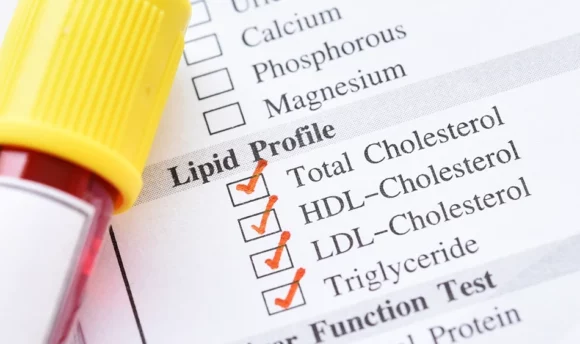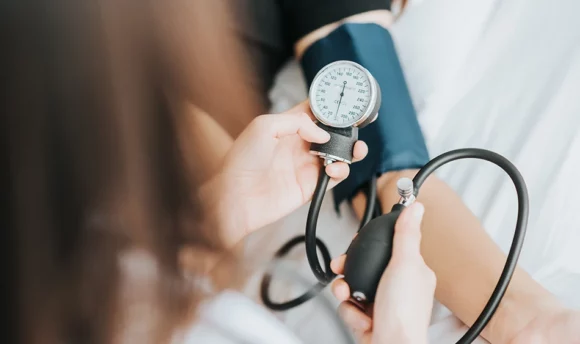Does Hydralazine Affect Heart Rate? Side Effects of the Heart Health Medication
If you’re taking hydralazine and have noticed an elevated heart rate, you’re probably wondering if there is a connection. This article covers this blood pressure medication in detail and discusses its influence on heart rate.

Every drug has possible side effects, regardless of the condition you try to manage. Symptoms can range from mild to severe and may include stomach upset, headaches, and even mood swings.
Before taking prescribed or over-the-counter medicines, it’s critical to assess the potential risk of developing adverse effects from the drug. Sometimes, these negative effects can outweigh the positives of certain medications.
Your doctor may need to prescribe you an alternative drug to treat your condition if symptoms persist.
For some people, one of the worst side effects of medication is changes in heart rate. A fast heart rate can make you nervous and even cause you to panic. If you’re taking hydralazine and notice changes to your heart rate or rhythm, keep reading.
This article discusses hydralazine and heart rate, how it works, and common side effects.
Does Hydralazine Affect Heart Rate?
Taking hydralazine may affect your heart rate. An irregular or fast heart rate is one of the hydralazine’s most common side effects and is considered a severe adverse effect. You should seek medical advice if you experience changes to your heart rate due to hydralazine.
Other heart-related symptoms include abnormally low blood pressure (hypotension), dizziness, and swelling in the arms and legs.
Hydralazine can increase the heart rate because it can stimulate the sympathetic nervous system. The sympathetic nervous system controls the body’s natural response to stress. When the nerves are stimulated, the body prepares itself for danger by increasing the heart rate and blood flow to the muscles and enhancing alertness.
Furthermore, if hydralazine causes a user’s blood pressure to drop to low levels, the heart rate increases as the blood vessels narrow to maintain and stabilize blood pressure.
Hydralazine medication can effectively treat sinus bradycardia, a slower than normal heartbeat. In hypertensive and non-hypertensive patients with sinus bradycardia, hydralazine caused the heart rate to increase by 20%.
What Is Hydralazine?
Hydralazine is a prescription drug used with or without other medications to treat high blood pressure (hypertension) and heart failure. It belongs to a family of medicines called vasodilators. Vasodilators dilate the blood vessels to improve blood flow throughout the body.
They keep the veins and arteries from narrowing and are used to treat angina, heart disease, and other medical conditions. Hydralazine does not cure high blood pressure, but it does help to control it.
Hydralazine is an oral tablet that is available via doctor’s prescription only. While usually dispensed as a generic drug, hydralazine is sometimes sold under the brand name Apresonline, among others.
What is hydralazine used for?
Hydralazine is used primarily to treat high blood pressure. It is usually offered as a long-term treatment, but it may be provided in the emergency circumstances of a hypertensive crisis, where blood pressure is dangerously high. In this case, it is given to patients through IV administration to reduce blood pressure rapidly.
Hydralazine may be prescribed to pregnant women in cases of eclampsia. Eclampsia is a severe complication of preeclampsia, a rare condition that triggers high blood pressure during pregnancy. The medication is also used as a treatment for heart failure.
It is not a preferred treatment to control hypertension as it is associated with adverse effects. Generally, it is only prescribed if other treatment options are unsuitable or unsuccessful.
How does hydralazine work?
As it belongs to a class of drugs called peripheral vasodilators, hydralazine works by opening the blood vessels and relaxing the smooth muscles of the artery walls. It prevents them from narrowing or closing. In doing so, hydralazine allows blood to flow more easily through your arteries and veins.
Increasing the blood supply allows the heart to reduce its workload. It lowers blood pressure, reducing the risk of heart attack and stroke.
Does hydralazine lower heart rate?
Although commonly associated with an elevated heart rate, hydralazine use may slow the heart rate in some circumstances. Animal studies have shown hydralazine to lower blood pressure while triggering a slow heart rate, known as bradycardia.
Further research is necessary to determine the reasons for this alternative response to taking hydralazine.
Hydralazine Side Effects
Like any drug, hydralazine may cause adverse reactions in some people. In fact, hydralazine comes with many potential side effects. For this reason, it is not a preferred drug for antihypertensive therapy.
Side effects from hydralazine and other medicines often occur in the initial stages as your body adapts to the medication. They typically go away as you continue treatment, and your doctor or pharmacist may provide medical advice for preventing or reducing some symptoms.
Common side effects of hydralazine oral administration include:
- Headache
- Nasal congestion
- Loss of appetite
- Nausea and vomiting
- Constipation
- Diarrhea
- Stomach discomfort
- Chest pain
Serious symptoms that require medical advice and assistance include:
- Muscle and joint pain
- Dizziness and disorientation
- Rapid heart rate
- Chest pain
- Swelling, tingling, or numbness in the arms and legs
- Swollen feet and/or ankles
- Fever
Allergic reactions to hydralazine may include:
- Skin rash
- Itchiness and redness of the skin
- Itching and/or swelling of the face, throat, or tongue
- Trouble breathing
- Severe dizziness
- Severe constipation
If you think you might be having an allergic reaction to hydralazine, seek emergency medical help.
If side effects persist and are causing you distress, you may want to opt out of using hydralazine to manage your hypertension. However, you must speak to your doctor or healthcare provider before coming off hydralazine.
Abruptly stopping the medication can lead to uncontrolled high blood pressure. It can also heighten your risk for other heart complications and may cause chest pain and heart attack.
Hydralazine is not recommended for coronary artery or rheumatic heart disease patients.
How to Take Hydralazine
When prescribed hydralazine, you will be given the medicine for oral administration. Your doctor will advise you of the correct dosage. You can also check the drug information that comes with the medication’s packaging.
How much you take and how often depends on your treatment plan. Factors such as age, diagnosis, the severity of the condition, and health status may influence your dosage. Other medicines may also affect your dosage. Always speak to your doctor or pharmacist about drug interactions.
Generally, patients take the oral tablet two to four times per day. If you are unsure how much hydralazine to take, check with your doctor. Dosage may vary, but the average dose for treatment of high blood pressure is:
- For adults: 10mg four times a day to get started. Dosage may increase as necessary, with no more than 200mg daily.
- For children: A doctor will determine a child’s dose based on their body weight. Most children begin with 0.75mg per kilo of body weight, split into four doses.
It is critical to take hydralazine as instructed by your doctor. You should also aim to take medicine at the same time each day, as missing your scheduled medication times can put you at higher risk of heart complications.
What if you miss a dose?
If you miss a dose of hydralazine, try to take it as soon as possible. However, if it coincides with your next dose, do not take two doses simultaneously. Taking too much hydralazine at once can be toxic.
FAQs
Hydralazine may not be suitable for patients with renal damage and should always be used cautiously under a doctor’s supervision. Studies have shown ANCA-associated vasculitis with severe kidney injury in hypertensive patients using hydralazine.
Hydralazine is not a beta blocker but may be prescribed alongside beta blockers and diuretics to control high blood pressure. As hydralazine causes a reflex increase in heart rate, beta blockers can help reduce these effects and improve the antihypertensive results.
Hydralazine is a fast-acting antihypertensive drug that delivers fast results. Blood pressure-lowering effects can occur within 20–30 minutes after oral drug administration. Although hydralazine works quickly to lower blood pressure, it is usually used in the long term.
A Word From Our MD
High blood pressure (hypertension) is a medical condition that requires treatment as soon as possible. Persistent hypertension can damage the heart, brain, and kidneys.
When left untreated, the heart and arteries may no longer function properly and can lead to life-threatening conditions like heart attack and stroke.
Fortunately, a hypertension diagnosis is treatable with lifestyle changes and medicines. Hydralazine, among other drugs, is prescribed to lower blood pressure. It works by relaxing the blood vessels to enable greater blood flow. It can cause side effects, including an elevated heart rate.
In addition to using hydralazine, you may be encouraged to take up daily cardiovascular activity to improve blood and oxygen flow. You could try walking 2 miles a day or going on long runs to improve your heart health and lose excess weight.
It is not always clear if you have high blood pressure, as most people do not experience symptoms. The only way to get an official diagnosis for medical conditions is with a trip to the doctor’s office. Your doctor can check your blood pressure and advise treatment if necessary.
Always seek medical advice from health professionals before coming off hydralazine. Suddenly stopping the medication or messing up your dose scheduling can harm your health.
Conclusion
So, will taking hydralazine cause changes to your heart rate?
Unfortunately, a fast heart rate and palpitations are commonly reported symptoms of hydralazine. It stimulates the sympathetic nervous system, causing an internal response that increases the heart rate. Other symptoms may include dizziness, headache, constipation, and chest pain.
Hydralazine is not usually the first choice of medicine for treating hypertension. Many other antihypertensive medications can help control your condition. Talk to your doctor or healthcare provider about alternative medicine if hydralazine isn’t working for you.

















































 Select your language:
Select your language: 








